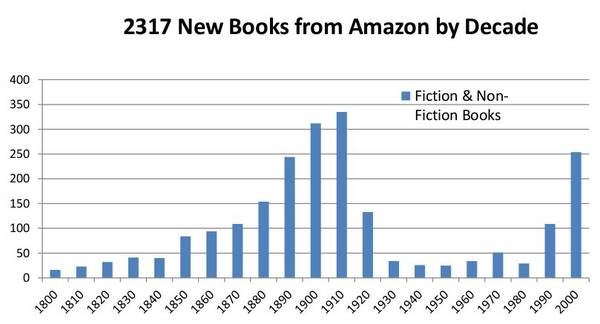Good post by Cory Doctorow illustrating how copyright is a type of censorship—in this case, it suppresses the dissemination of books caught in the copyright “black hole” as a result of the combination of copyright terms, the orphan works problem (which is a result in part of the lack of a requirement for copyright registration formalities and renewal requirements).1 But notice that Doctorow—who does not oppose copyright per se2 —blames this on “long copyright terms” instead of copyright itself. This is akin to people who favor a “modest” minimum wage of say $10/hour but who would not favor a $100 minimum wage because they know that it would cause severe unemployment; a small amount of unemployment is tolerable, however. Likewise, even if copyright terms were shortened, the damage done by copyright would be reduced, but would still be real. The problem is not long copyright terms; it is copyright itself.
How long copyright terms make art disappear
Cory Doctorow at 10:57 am Fri, Jul 5, 2013
Jill sez, “Exciting study samples new books for sale by Amazon and asks: Why are there three times more books initially published in the 1850’s than books from the 1950’s? The chart on page 15 is eye-popping, showing graphically decade-by-decade how many more new books initially published before 1923 are currently available than those published after 1923 [the magic public domain date]. The music and YouTube data are also compelling!”
Jeff Tucker, by the way, discussed this over a year ago, in Market Failure? The Case of Copyright (2), in which he observed that:
There was a brief moment in the early days of Google when the company naively imagined that it could do the right thing and make all of this literature available for instant viewing and printing. They had the technology to rescue it all and bring it to the whole world. Publishers, backed by regulations that favor them, went bonkers. Google tried a profit-sharing agreement. Didn’t work. Finally, Google bailed and cooperated with the prevailing system.
The results you see in this graph. There is an 80-year black hole in which literature is being buried. In some ways, a whole century of ideas is being forced under a rock by government in league with large publishers. And it is getting worse by the day. Publishers are going through their back catalogs and threatening anyone who puts even a scrap online. Not that they plan new editions; they are just claiming what they think of as their assets.
This is a case of incredibly tragic loss. As you can see from the above chart, the literature of 1850 is more available than the literature of 1970. How preposterous is that? This is all a direct result of unprecedented, outrageous regulations that have effectively put a censorship veil over history’s most-productive period of literary creation. This entire world is trapped in libraries that no one visits or is being put on remainder racks so that libraries can create more space for coffee bars.
There is a more general lesson that pertains to all government regulations. Even one line can be impossibly damaging to industry and to social advancement. It is extremely difficult to quantify the losses. This is just one case, but it is an important one because it deals with the most important thing any civilization possesses: its treasury of ideas. That treasury has been thrown to the bottom of the sea. Someday, explorers will discover it and wonder how any society could have let this happen even though it had the means to do otherwise.





You must log in to post a comment. Log in now.